In the past, skateboarding was seen as an unruly act that violated laws and defied the virtues fostered by team sports. Fortunately, today skateboarding has come to be recognized as a legitimate sport that’s not just for punks, particularly in Japan.
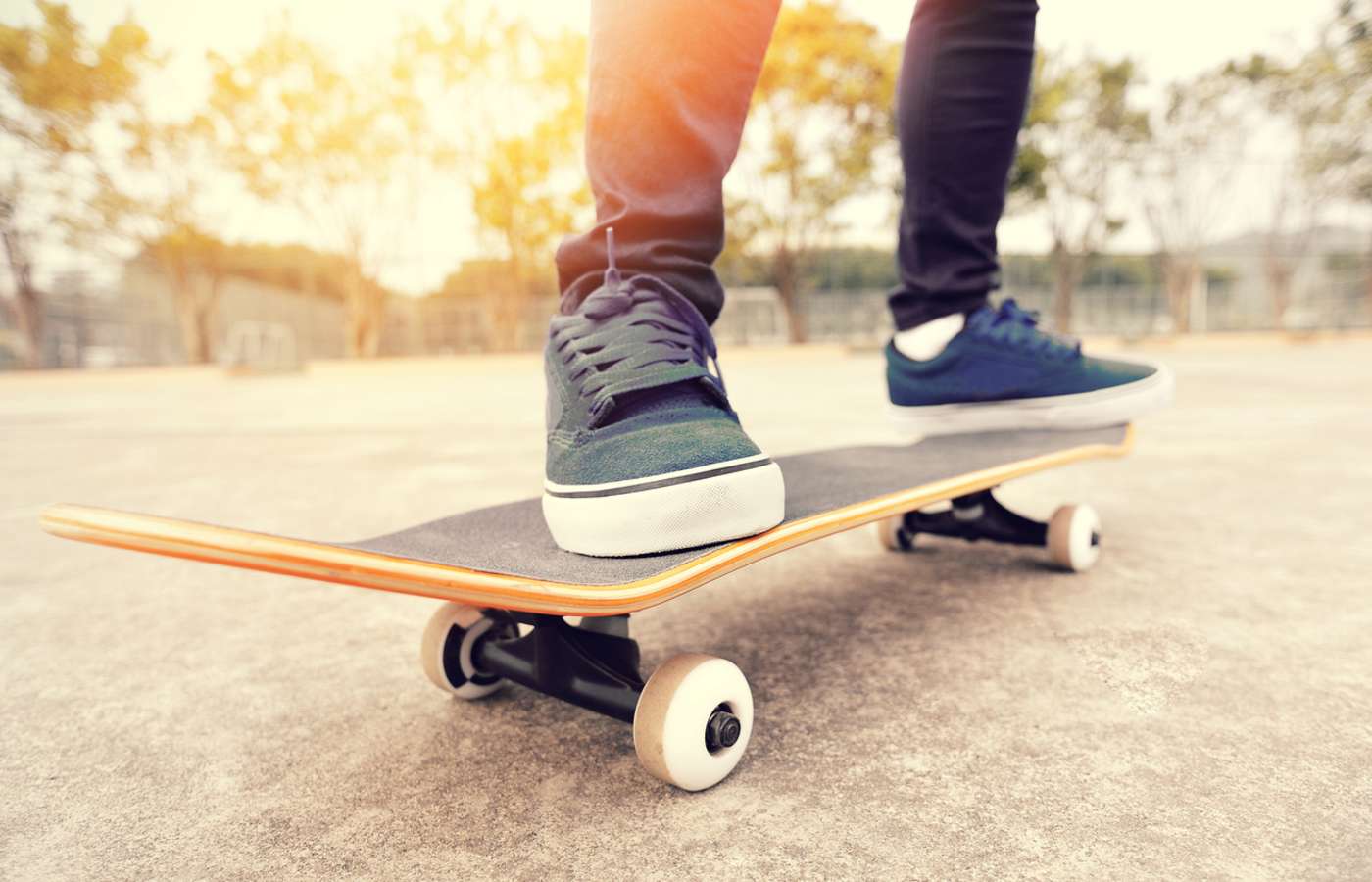
A global phenomenon: skaters finally get their due
In Japan, skateboarding’s popularity as a global phenomenon was especially evident in the 2020 Tokyo Olympics, where young athletes Yuto Horigome and Momiji Nishiya took home gold medals for Japan, ushering in a new era for the sport. But how did Japan get here? The country has a long history of connections to the skateboarding world.
The beginnings of skateboarding in Japan
Since the 1990s, skateboarding has been associated with baggy clothes, rap and punk music, and rebelliousness. In Japan, the Ura-Harajuku scene in Tokyo was the perfect breeding ground for skate culture, given the endless proliferation of underground scenes that intermingled in the trendy and crowded area, including rockabilly, goth, hip-hop and more.
In quintessential Japanese fashion, what was once a Western concept soon gained a new sense of global appreciation thanks to the Ura-Harajuku scene. The Japanese style of skating, despite police crackdowns, was free, effortless and quick-footed, and this style helped redefine the sport globally. Today, the ubiquitous and world-famous skate brand Supreme has six of their twelve stores in Japan—further testament that skateboarding’s current global popularity is deeply connected to Japan.
Top skateparks across Japan
Skateboarding is at peak popularity in Japan today, and new places to get familiar with the sport or practice your kick flip are appearing all the time. Below are just some of the awesome skateparks that you can check out on your next visit to Japan.
Kitakyushu Skateboard Park
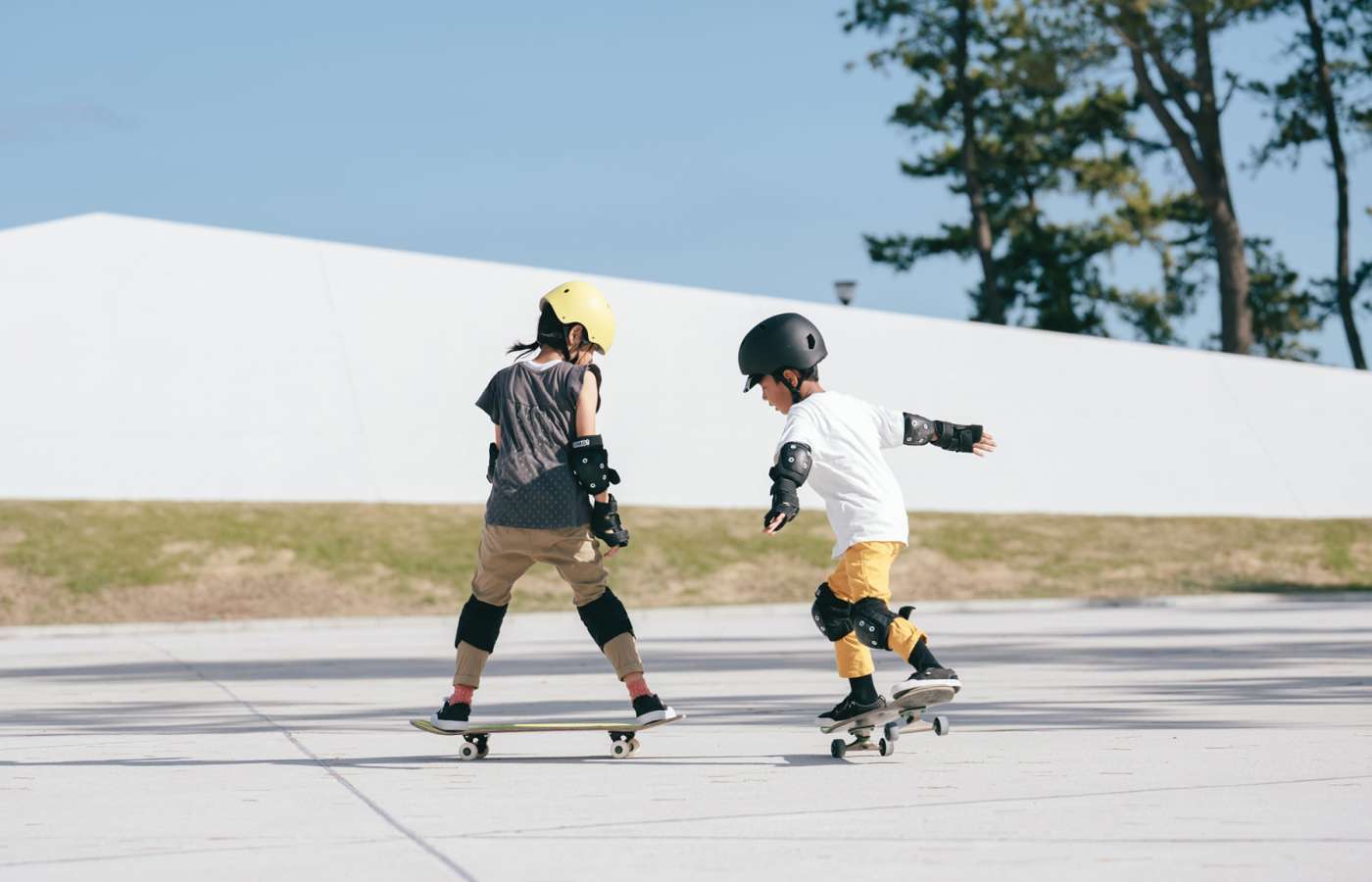
(c)cashattosha, Yasuhiro Hagi / 萩 康博
Located in Kitakyushu within a public park, this expansive skatepark welcomes skaters of all skill levels, and features a drop-in bowl, banks, stairs and grind rails. Thanks to Japan’s Olympic success in skateboarding, a lot of children are now taking up the sport, and this park is a great place for kids. It’s free from 10 AM to 6 PM on weekends and holidays, but weekday access requires a reasonable annual membership fee.
Miyashita Skateboard Park
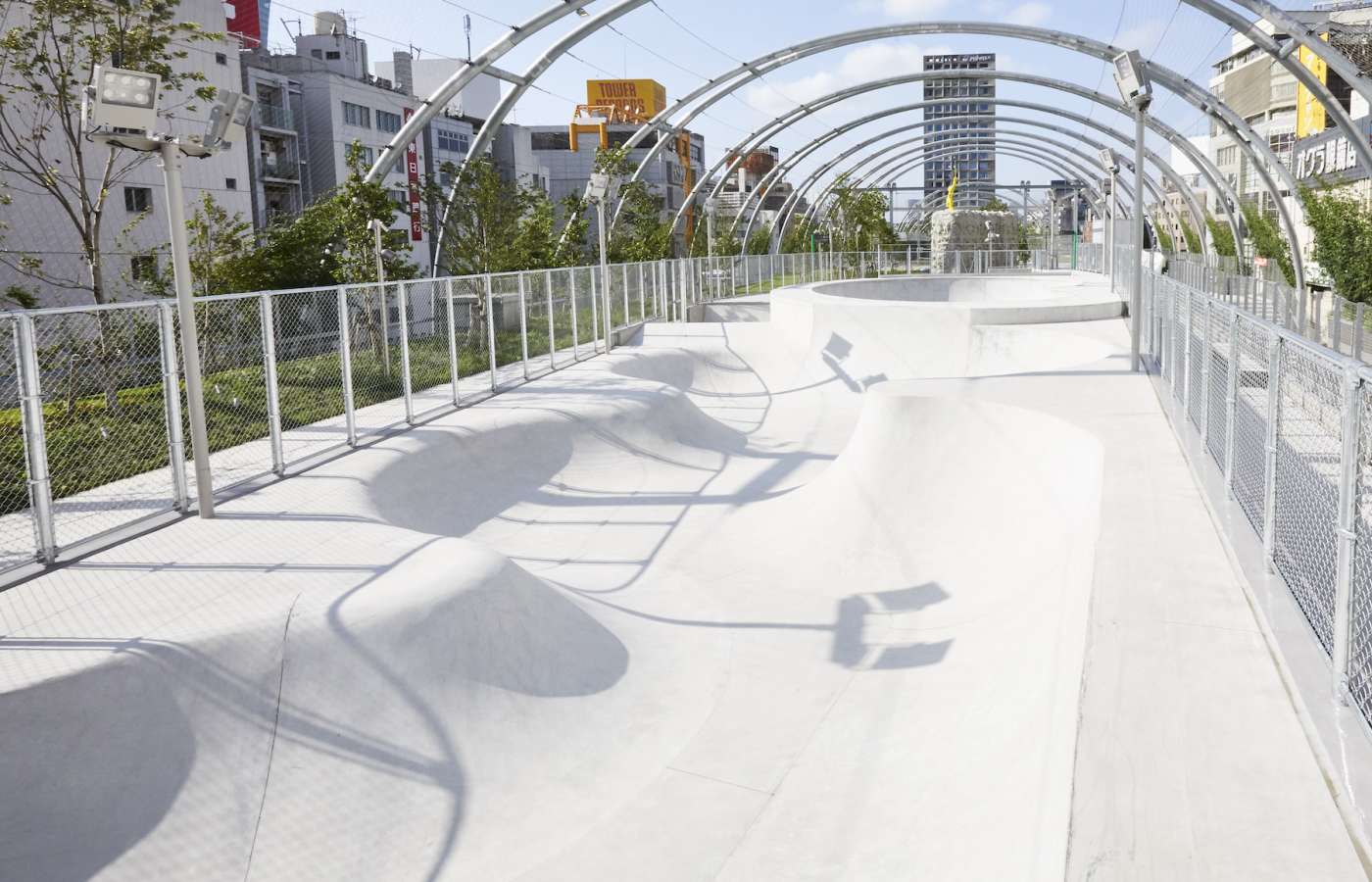
Photo credit: Miyashita Park Content Direction Committee
Located in the heart of Tokyo between Harajuku and Shibuya , this urban skatepark built into the cityscape is an exciting spot for visitors to Japan’s capital. The park is a bit smaller given the urban location, and a two hour session costs 1,000 yen. Helmets are required and available to rent free of charge.
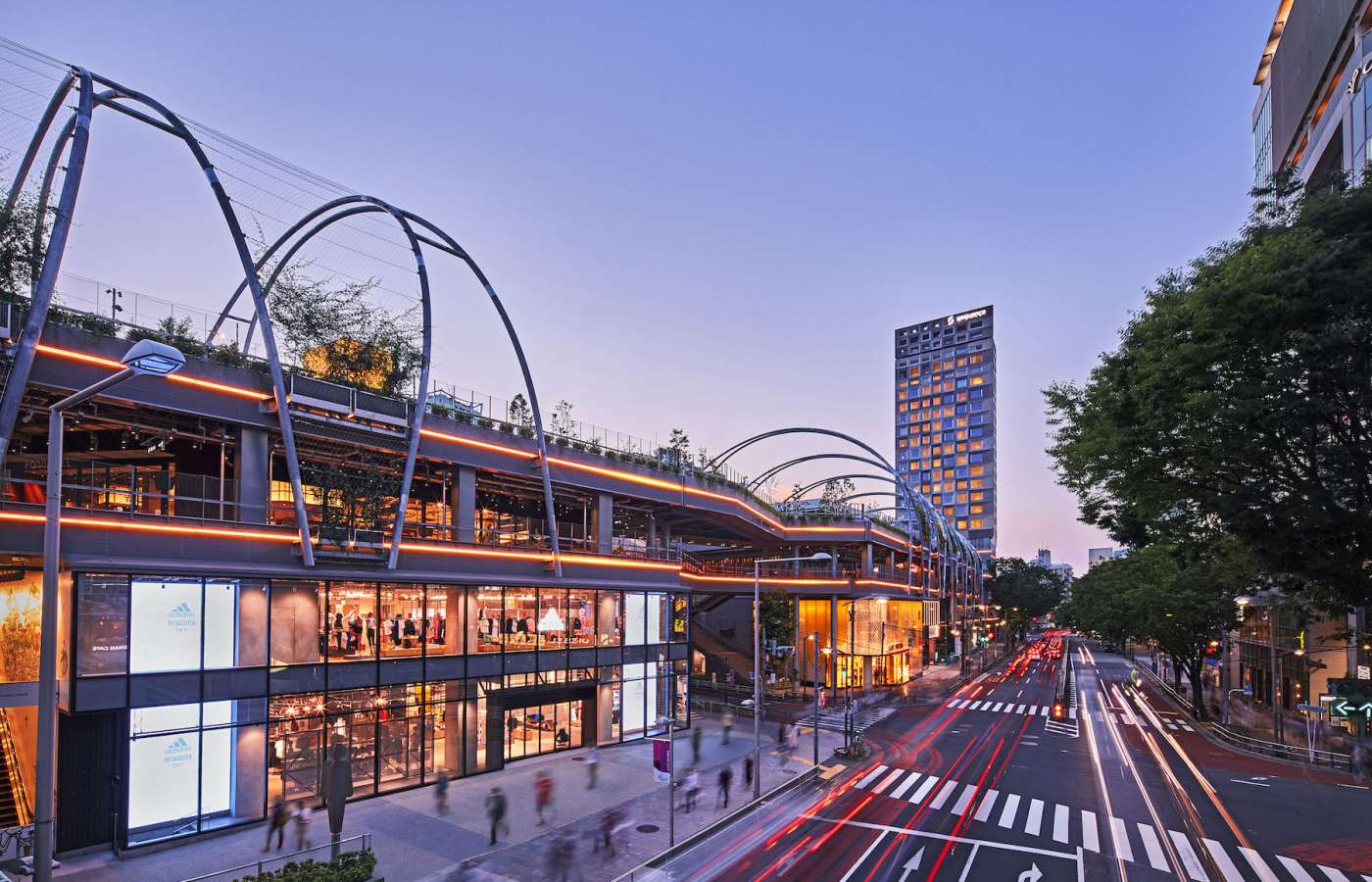
The modern-day Harajuku area and Miyashita Park
Photo credit: Miyashita Park Content Direction Committee
Amazing Square Murasaki Skatepark in Adachi-ku
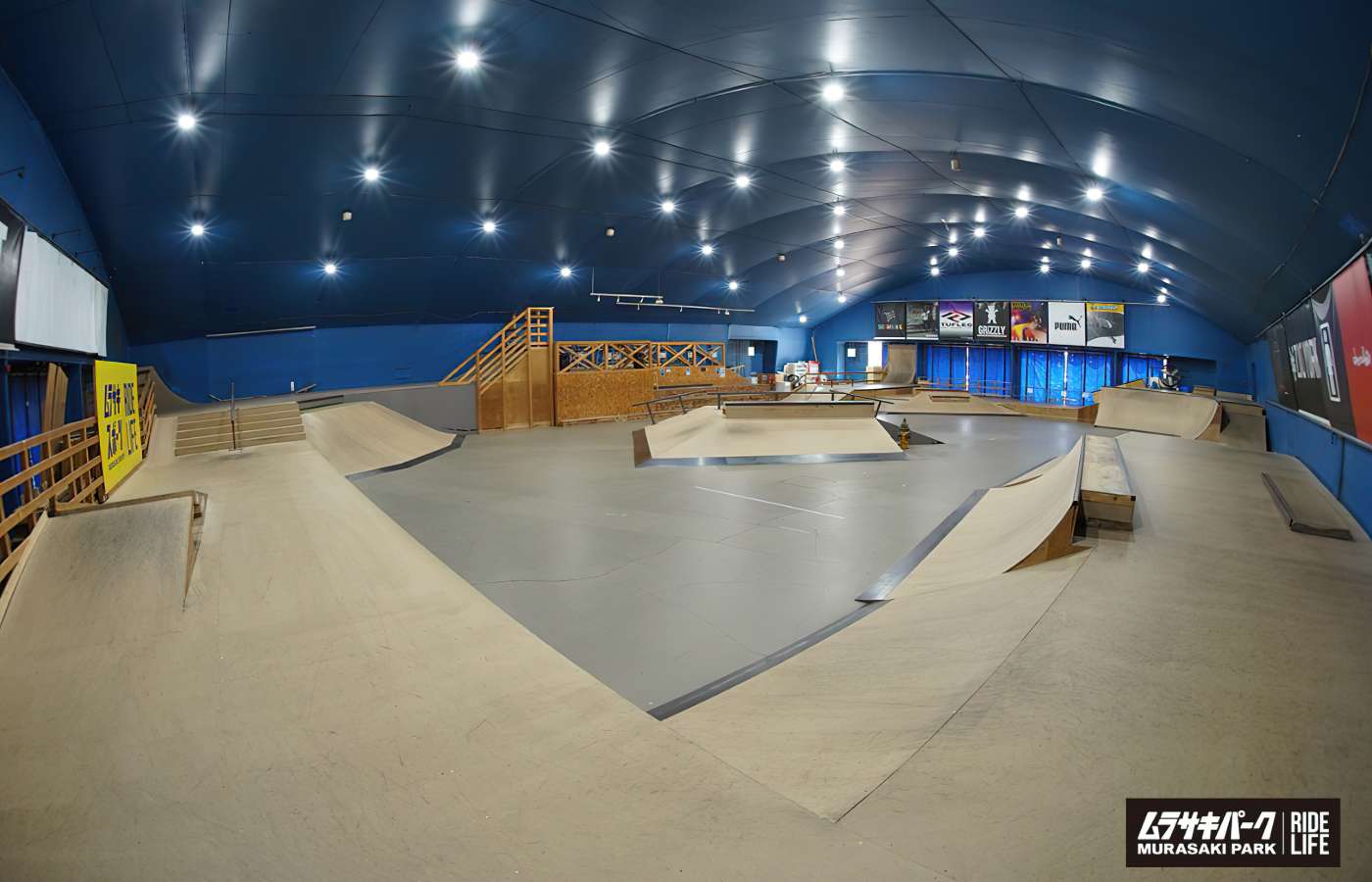
Photo credit: Amazing Square Murasaki Skatepark
Sponsored by Japan’s biggest extreme sports brand, Murasaki Sports, this indoor/outdoor park on the north side of Tokyo is legit! Complete with a 14-foot halfpipe, the park is accessible year-round for about 1,000 yen per day.
Skateboarding for everyone: learn the ropes, or test your skills
After Japan’s success in the 2020 Tokyo Olympics, skateboarding has found new appreciation with many age groups, and it’s amazing to see children and adults alike embracing the sport and learning the ropes. Are you stoked to bring your board to Japan and show off your skills, or perhaps just check out how Japanese skaters get down?
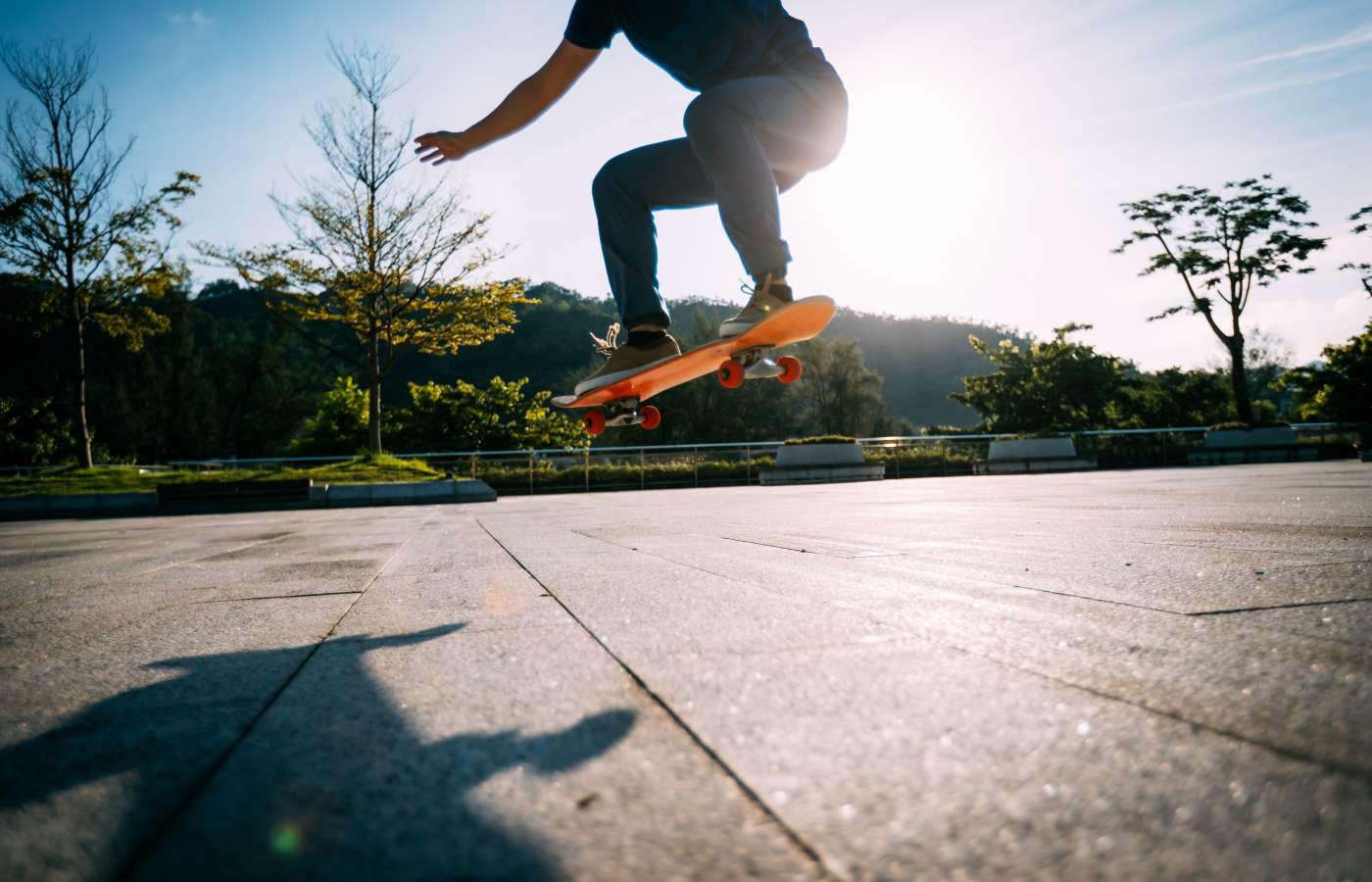
Once an expression of counterculture, skateboarding has grown into something greater. It fascinates millions around the globe, promoting a new era of extreme sport appreciation and bringing people together despite language barriers. On your next visit to Japan, we hope you check out the skateboarding scene and gain new appreciation for this awesome global sport!
-
About the author
Author: Caleb DeMarais
Profile: Caleb DeMarais hails from the USA but has called Japan home for nearly 15 years. Whether knee deep in Japanese onomatopoeia, dissecting traditional craftsmanship or trying his best at rakugo puns, a fascination with everything Japan inspires his work as a writer and translator.





















































